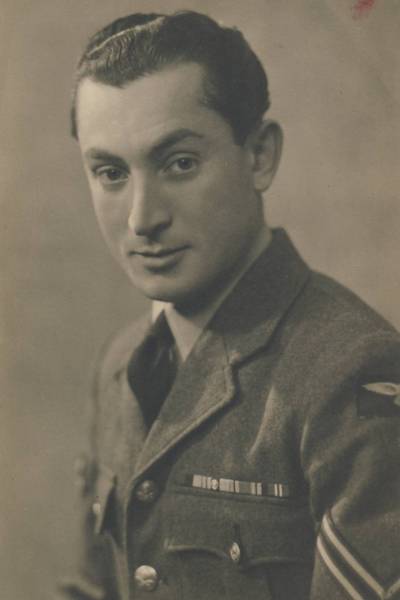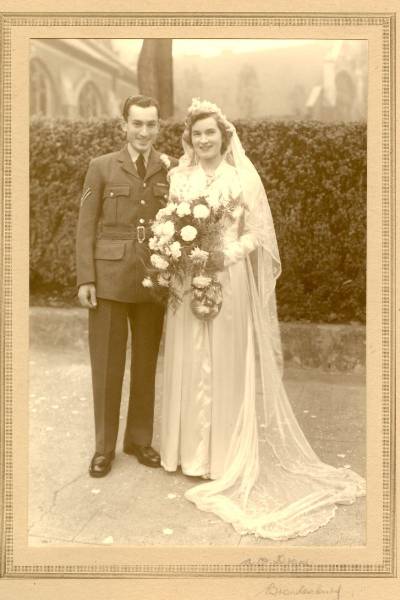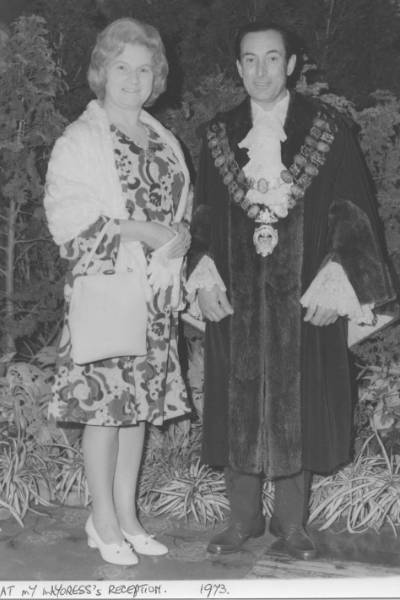This incredible story of a love that started after the devastating war tells a tale of perseverance, struggle and life-long marriage. It’s not every day we hear about such stories, but when they do come around, they leave us in total awe.
Loreto and Olive York’s journey started right after the war, but before we get to that, you need to know a little bit about Loreto. He was born and raised in Malta from 1918 to 1940. His parents, Loretta and Salvatore Meilak were originally from Ghajnsielem in Gozo, but in 1917 they moved to Sliema, where Loreto was born. He was the eleventh child, even though four of his siblings died as babies.

“He volunteered for the Royal Air Force in Malta and was sent overseas to Alexandria and other parts of the Middle East,” his son, Barry tells OurWedding. “After the War, my dad was stationed with the RAF in the UK and ended up in London. His parents had died in Malta during the War years and Malta was devastated. He felt he had nothing to return to, so he remained with the RAF in London, renting a room in a house owned by a good friend he met in the RAF in West Hampstead, London.”
His friend’s wife told him she knew a family who had two lovely unmarried daughters: Vida and Olive and promised she’d introduce him. “He was initially keen on Vida,” Barry says. “However, Olive fell for him at first sight and when he mentioned one day that he had tickets to go to the theatre, Olive quickly jumped in and said, “I'll go”.”
“They lived on opposite sides of a railway line. Olive also lived upstairs in her (widowed) mother's house and as my dad's room was also upstairs in the house across the railway line, they would signal each other in the dark of night by turning the lights on and off in their respective rooms. Romantic!”

But as you may have noticed, Loreto and Olive are Yorks, but Loreto was born Meilak. Barry tells us that it all came down to discrimination in London as well as easier spelling for Loreto to change his surname. “He told me that he would try to spell it but would pronounce some letters, such as ‘e’, in the Maltese way rather than English and would become frustrated and sometimes his senior officers would be annoyed with him for seemingly not knowing how to spell his name. Also, there was occasional discrimination against ‘foreigners’ in London at that time.”
“He tried hard to integrate and to speak English properly, though he never lost the Maltese accent. He was fiercely proud of being Maltese and spoke the language fluently. Heaven help anyone who spoke negatively about Malta in his presence!” says Barry.
“My mother was a Londoner and never visited Malta and my dad never went back. Most of his siblings migrated to Australia. His brother, Joe, had migrated in 1925 and was working on the Melbourne waterfront. He nominated us as assisted passage migrants and we sailed to Melbourne from London in 1954. His brother, Mike, emigrated in 1949. Others followed, too,” Barry notes.
“I think my father was badly affected by the War, mentally. He could be very charming and jovial but could suddenly change. He had a very quick temper,” Barry says, which is a major component that affected the Yorks’ marriage over the years.

Olive believed that “their happy years were in the 1970s, when my father was involved in local politics in Brunswick, Melbourne, and was elected Mayor in 1972,” says Barry. “He continued to work in a factory, but they were a diligent Mayor and Mayoress. He was the first Maltese mayor of an Australian city. In 1990, they divorced – aged in their 70s. Thereafter, they lived separately but kept in close touch – and both said they had never got on so well! Life can be cruel and so strange,” Barry says.
His parents have since both passed – Olive in 2003 aged 87, and Loreto in 2009, aged 90.
Barry York